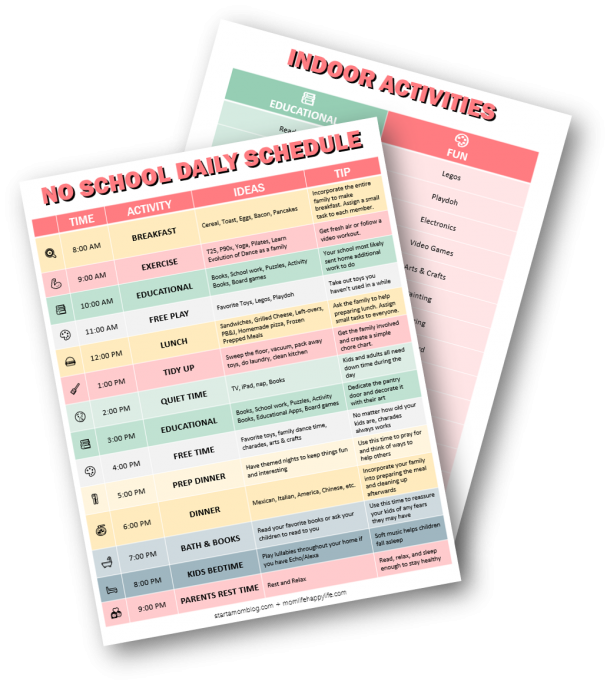Do you say “yes” when you really want to say “no”? If you answer yes to this question, then I’m here to tell you that you’re not alone. Many of us have been trained since we were toddlers to be kind, to do as we’re are told, and don’t be rude.
If you’re having trouble saying no, then this short article should be helpful. We will discuss the reasons we don’t say no when we should, how to mean no when we should and why we should say no instead of saying yes.
Let’s first examine why people always say yes.
Why People Resist Saying No
The Desire to Help
Kind-hearted people are more inclined to help. Obviously, there’s nothing wrong with kindness. In fact, the world needs more acts of kindness. But it’s easy to take advantage of agreeable people. If you’re a pleasant person, you don’t have to let people take advantage of your good nature.
Remember, you’re only one person. You can’t help everyone, even though you’d like to. The word no shouldn’t make you feel guilty and don’t think you are letting the other person down.
Fear of Conflict
For some people, saying yes is easier. Saying yes prevents conflict, and the yea-sayers are afraid of conflict. Conflict is an uncomfortable situation. The rejection or negative consequences are two examples of why you may say yes when you want to say no. We have suggestions listed below on how to get past this fear.
Afraid of Being Rude
If you think saying no is rude, then you’re revealing your age. Older crowds tend to believe that saying no is equivalent to being offensive. Is this you?
You can change your way of thinking. You can say no, kindly. Be honest and explain why you can’t offer assistance, volunteer, or attend events. Most people will understand your dilemma.
WHY YOU SHOULD SAY NO
You’re a Grownup
First and foremost, you are not a rotten person because you tell someone no. Let’s talk about being a toddler for a minute. Toddlers are notorious for saying no. Parents response was to teach the toddler that she was rude or impolite.
Now, as adults, we continue to associate the word no as being wrong, unkind, shameful, or rude. Saying no as a toddler was a corrected behavior that now as adults, needs to be redefined. We are mature humans that know what is right or wrong for our own well-being and are capable of making decisions for ourselves without the stigma of indignation.
Overcommitting
If you don’t say no, you will find yourself in a cycle of commitments. First, it’s your family commitments, then your workplace, your friends, and the list doesn’t end. Your schedule becomes a large calendar on the wall, with highlighted events, reminders, and notes. These commitments equal to hours of blocked time, adding stress to an overscheduled life.
It’s hard to try to do everything we would like to do in an ordinary 24 hour time frame. There’s never enough time. Accept the fact that you can’t (and shouldn’t) do it all. Prioritize your schedule first for yourself. Commit to what you want to do, then you will instinctively know if your plan permits you to make the three dozen cupcakes for your child’s class event.
Stress Reduction
Have you agreed to do something, only to feel the stress and pressure of actually completing the activity? It happens all the time. We say yes without thinking it all the way through, and the worry of accomplishing the task, so you are not deemed a failure can make you physically, and emotionally unhealthy.
If you’re dealing with stress in your life, take an inventory of the things you’ve allowed yourself to be committed to and decide right now, you’re going to say no to the next request. You will learn that saying no is an easy way to reduce stress. The cost to say no is insignificant compared to the cost of always saying yes.
Time Management
You can’t buy more time. We’ve already established that there are only 24 hours in a day and studies show you need 7-8 hours of sleep. Now you only have 16 hours to share with your family, your friends, your boss, your neighborhood, your church group, your work, and I’m sure you get the idea.
These are your hours to use as you see fit. You control how you use this precious time because your priorities and responsibilities are well known. Remember, you can’t help everyone and everything.
Increase Focus
This isn’t about saying no; it’s about knowing when to say yes. Do you like the activity? Does it spark interest? Is it fun or rewarding in some way? Then, it doesn’t hurt to say yes. Actually, saying yes is all the better. Doing something for fun or enjoyment increases the focus of your own life. Increased focus makes it easier to achieve short and long-term goals.
Self-Assurance
When you say no to something or someone, you’re actually saying yes to yourself. With more practice, you’ll notice a boost in your self-confidence level or the people around you will see the change.
Your self-worth isn’t dependent on how much you do for other people. When you respect your time and live by your no and your yes’s, then those around you will appreciate you also. Even if they’re unhappy with your no initially, your real friends and family won’t hold it against you.
More Energy
If you have no time or interest in assisting with projects, you are wasting energy. You can be more productive if you put that same energy into something more positive and interesting. Attitude, feelings, and stress level all change for the better.
Achieve Your Goals
Do you have an issue with achieving your goals? If you’re always saying yes to everything, then it’s not surprising. How can you expect to volunteer at the library, help in the classroom every morning, and take your parents to their appointments and still write that best seller? You need some You-Time to concentrate on yourself. You can learn to say no.
Saying no not only helps you to stay true to yourself and stick to your goals, but it also reduces distractions. Distractions undermine the essential things in your life. To set boundaries, you have to learn to say no. You can draw the line in the sand.
YOU’RE THE PARENT NOW

Saying No to Your Children
A parent faces many stressful situations, but one of the hardest things is saying no to your children. When you tell your children no, do you feel like the bad guy?
To Rebel or Not to Rebel…that is the question.
Many parents are afraid of creating an atmosphere of rebellion or even resentment. While other parents think that saying the word too much will desensitize its meaning. No one wants to be criticized for their parenting methods.
If your child doesn’t listen or tries to manipulate you when you say “no,” stand firm and be consistent. There may be a battle of wills on the horizon. Stay calm, quiet, and don’t give in to your emotions. Otherwise, they will use your feelings against you to change your mind and the answer.
2 Signs of manipulation.
- Total temper tantrum – then if this doesn’t work, see tactic #2
- I’m an angel – sweet face, doe eyes and super loveable
Complete meltdown with slamming doors, shouting, or tears is a manipulative sign that’s easy to see. And one that is easy to argue the point of saying no. But the second manipulation tactic #2 is sometimes harder to discern and stand firm.
Have you seen the sweet face or loving attitude? This gentle tactic often comes after the first tactic didn’t work. It’s a kind or accommodating ploy often associated with giving you big doe eyes, many compliments, or being especially cooperative with chores.
Limitations with Love
Both tactics can be used repeatedly before your child gives up and accepts your answer. Recognize these ploys and stand firm. You can explain your reasons behind your decision but beware; kids are smart, and they will use your justification against you. Negotiations are not allowed. Reversing your ruling during your child’s attempt to negotiate or bargain will only reinforce that manipulation works.
THE WORKPLACE NO

Saying No at Work
Saying no at work isn’t the same as saying no to your children. Relationships with co-workers are on a different spectrum. You may enjoy helping, volunteering, or stepping up because you enjoy the socialization. That’s great! You do you.
Some typical everyday work situations that you might want to say no:
- Outside general job description – Saying no to something outside your realm of job duties will not jeopardize your position.
- Taking your work home after hours – Unless it’s part of your job, be consistent with saying no to working after hours or weekends. Your peers will respect your requests.
- Attending meetings or committees – If these appointments are not mandatory or beneficial to your work or continuing education.
- Partaking in after-hours office parties – Some employers use this method to create a bonding experience for its employees, but you may not wish to attend.
For whatever reason you can’t or don’t wish to participate, you should say no.
It is a professional courtesy to meet the requesting agent in person to say no. An email response has an odd way of being misinterpreted, creating workplace tension. Take extra steps to avoid misunderstandings. Be honest and upfront with your peers, and you will gain respect. Besides, if you end up participating, your friend will be happy to see an extra pair of hands and will welcome you.
HOW TO EFFECTIVELY SAY NO
Saying No – Realistic Scenarios
Listed below are non-argumentative solutions to aid you in taking control of your time to say no when warranted.
“Now Is Not a Good Time.”
Does your calendar look like a myriad of rainbow colors that block out dates for events and appointments? Consider your colorful schedule before you answer any requests for help. This simple response lets people know that although the time is not suitable for you; you’re willing to help. Let them know you’ll be in contact as soon as, or if, your calendar clears.
“Let Me Think about It.” or “Let me sleep on it.”
Sometimes you really do need to think about it. Do you want to help or participate? Take a day to think about whether or not you want to participate. If you also indicate how long it will take you to make up your mind, this helps to prevent repeated requests. You can say, “Let me think about it. I’ll let you know by the weekend.”
“I’m Not the Best Person to Help You with This.”
It’s okay if you are unable or don’t have the resources to help, but let the requestor know immediately. Go a step further and suggest someone who does have the ability or experience. Referrals are like hidden treasure, so don’t be afraid to pass the information along. If it’s a match, then you get to be a hero.
“I’m Not Currently Interested, But I’ll Keep You in Mind.”
This reply eliminates long, drawn-out discussions in a considerate manner. And conveys the fact that, while you’re currently not interested in assisting with a project, you’ll remain open to the possibility. This type of answer is especially helpful when someone is proposing an opportunity that doesn’t meet your needs.
“I’m Sorry, I Can’t.”
This straightforward response used without hesitation works most of the time. The little caveat is the difference between hesitating and an immediate reply. The hesitant response allows for a redirect and manipulation. Just be sure to make this response quick.
How to Soften the Blow with a Counter Offer
When working with your clientele or customers, a counteroffer may be a good option. Instead of saying no, offer an alternative. If your client, in turn, declines the replacement, then you’re in the clear. This method allows you to save face by not saying no, and instead, they are the ones to say no. Your position remains professional, and you will gain respectability.
The Bottom Line
“What you don’t do determines what you can do.” Tim Ferriss
Remember, saying no does not make you an evil person. Saying no makes you healthier and happier. You can still say yes when you deem it necessary or beneficial. We all could use a little helping hand. Saying yes or no is totally up to you!







